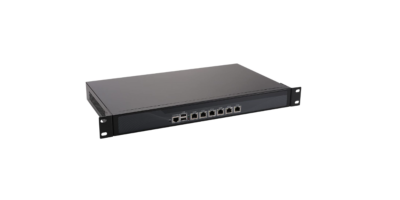In today’s digital-first healthcare environment, cybersecurity is more critical than ever. Medical practices, hospitals, and healthcare organizations manage vast amounts of sensitive patient information daily. From electronic health records (EHRs) to billing systems and telehealth platforms, each system requires secure access protocols to prevent data breaches. One of the most overlooked yet highly effective tools for protecting healthcare data is a password manager.
A password manager for healthcare businesses provides an efficient and secure way to store, share, and manage passwords across multiple platforms while ensuring compliance with regulations like HIPAA. For healthcare providers striving to balance patient care with strong data security, password managers are no longer optional – they are essential.
In this blog, we’ll explore the top reasons why healthcare businesses should adopt a password manager and how it can protect sensitive patient data, enhance staff efficiency, and ensure compliance.
1. Protecting Patient Data and Preventing Breaches
Healthcare is one of the most targeted industries for cyberattacks due to the value of patient health records on the black market. Unfortunately, weak or reused passwords are a common entry point for hackers. A password manager eliminates this risk by generating strong, unique passwords for every account and securely storing them in an encrypted vault.
Instead of relying on staff to remember or reuse weak passwords, a password manager ensures that all login credentials remain secure, protecting both patient data and the organization’s reputation.
2. Meeting HIPAA Compliance Requirements
Compliance with HIPAA is a top priority for every healthcare provider. HIPAA mandates that healthcare businesses implement access controls to safeguard patient information. A password manager supports this by providing centralized password storage, access monitoring, and audit trails.
With role-based access features, administrators can grant or revoke permissions instantly, ensuring that only authorized staff members have access to sensitive information. This makes it easier to stay compliant and avoid costly penalties.
3. Enhancing Staff Productivity
In a busy healthcare environment, staff members often need quick access to multiple applications, from EHR systems to diagnostic tools. Constantly resetting forgotten passwords wastes valuable time and disrupts patient care.
By using a password manager, staff can log in seamlessly with just one master password. Autofill features also make it faster to access applications, reducing delays and improving overall productivity. In healthcare, every second counts—and password managers help eliminate unnecessary roadblocks.
4. Reducing the Risk of Human Error
Human error is one of the leading causes of healthcare data breaches. Employees may accidentally store passwords in unsecured places, share them via email, or fall victim to phishing attempts.
A password manager reduces these risks by encrypting login credentials and providing secure sharing options. Staff no longer need to write passwords on sticky notes or send them over unsecured channels, minimizing the chances of accidental exposure.
5. Securing Remote and Hybrid Work Environments
With telemedicine, remote healthcare workers, and hybrid office setups becoming the new normal, maintaining secure access is more challenging. Password managers play a vital role by ensuring that remote staff can securely access systems without compromising sensitive patient information.
Whether logging in from a clinic, hospital, or home office, staff can rely on a password manager to provide the same level of protection across devices and locations.
6. Simplifying Credential Management for IT Teams
IT administrators in healthcare organizations face the daunting task of managing multiple user accounts across numerous systems. Without centralized control, this becomes a time-consuming and error-prone process.
A password manager provides IT teams with centralized oversight, enabling them to provision accounts, enforce password policies, and monitor usage. When an employee leaves the organization, administrators can quickly revoke access to prevent unauthorized logins.
7. Preventing Password Fatigue
Healthcare workers often juggle dozens of accounts, from EHR systems to insurance portals. Trying to remember all those passwords can lead to “password fatigue,” causing employees to reuse simple passwords or write them down.
A password manager solves this issue by securely storing all passwords in one place, allowing staff to remember only one master password. This not only improves security but also reduces cognitive stress for employees.
8. Cost Savings by Reducing Security Incidents
Data breaches in healthcare can be extremely costly. According to IBM’s Cost of a Data Breach Report, the average healthcare data breach costs over $10 million – the highest across all industries. Investing in a password manager is a cost-effective way to prevent such incidents.
By reducing the likelihood of breaches, password resets, and compliance fines, password managers help healthcare organizations save money while strengthening security.
9. Strengthening Multi-Factor Authentication (MFA)
Many password managers integrate seamlessly with multi-factor authentication (MFA), adding another layer of security. Even if a hacker were to gain access to a password, MFA ensures that unauthorized users cannot log in without additional verification.
For healthcare businesses, combining a password manager with MFA creates a robust defense system that greatly reduces the risk of cyberattacks.
10. Building Patient Trust Through Strong Cybersecurity
Patients trust healthcare providers with their most sensitive information. A single data breach can not only lead to financial loss but also damage that trust permanently. By implementing a password manager, healthcare organizations demonstrate their commitment to protecting patient privacy.
Building trust through strong cybersecurity practices not only ensures compliance but also enhances the overall reputation of the business.
Why Healthcare Businesses Should Act Now
Cyber threats against healthcare organizations are only increasing. With ransomware, phishing, and credential-stuffing attacks on the rise, healthcare providers cannot afford to take shortcuts with password security. A password manager for healthcare businesses provides a scalable, compliant, and cost-effective solution that strengthens defenses while improving staff efficiency.
By adopting a password manager, healthcare organizations can reduce risks, improve compliance, and create a culture of security that protects both patients and providers.
Conclusion
From protecting sensitive patient data to streamlining workflows and meeting compliance requirements, password managers are essential tools for today’s healthcare businesses. They not only improve security but also enhance staff efficiency and patient trust.
If you’re looking to improve your organization’s security posture, adopting a password manager for healthcare businesses is one of the smartest decisions you can make.At MedicalITG, we specialize in helping healthcare organizations strengthen their cybersecurity and meet compliance requirements. Explore our full range of healthcare cybersecurity services here: healthcare cybersecurity services. Contact us today at (877) 220-8774 or email info@medicalitg.com to schedule a consultation and protect your healthcare business with industry-leading solutions.
Resources:
https://healthcareitsm.com/blog/healthcare-business-password-manager
https://www.dashlane.com/blog/how-to-manage-passwords-in-healthcare
https://thrivenextgen.com/password-managers-4-reasons-you-should-use-one-for-your-medical-practice










